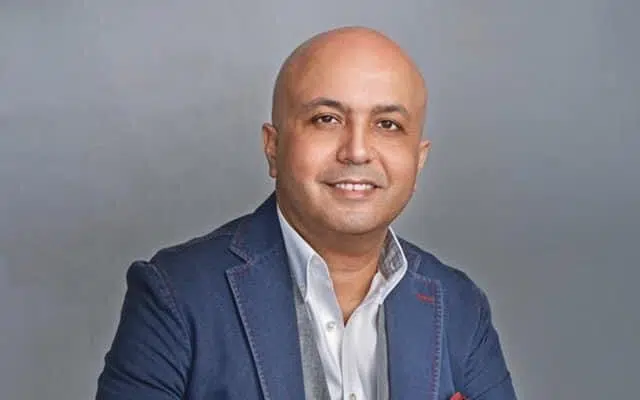
Mohamed Khirallah. Image: Submitted
COVID-19 has disrupted business all across the board, including those owned by recent immigrants in New Brunswick.
Mohammed Khirallah, who founded the New Brunswick Business Immigrants’ Association (NBBIA) about a year and a half ago, said the challenges are compounded for immigrant-owned businesses because of the lack of networks they have.
“Most of the support comes emotionally. People support businesses they knew since they’re kids…it was always there and they want this business to remain…[They] would go to support the business of friends or family or relatives. So, some businesses have great support and some other businesses have none,” he said.
“And you, as a newcomer, have the least support because you don’t have a network, or extended family and relatives. So some of the newcomers businesses are in great danger and great challenge.”
Community support is important because newcomers tend to run retail establishments like cafes and restaurants – especially those related to their cultural cuisines – which rely on the local market, he said.
“As a matter of investment, people think restaurants and cafes or food and beverage industry is much easier than others…This is not the case…The risk is very high in food and beverage business. And this pandemic proved that it’s a very risky business,” Khirallah said.
He said while federal and provincial government aid help has been “great” and fair, it can only keep businesses afloat, but not grow and sustain itself if a business doesn’t have customers.
“Still we need the community support, we need people to make orders, we need people to do business with us,” he said.
He’s seen some immigrant business owners work towards closing their doors, and many are laying low and trying to ride out the crisis. But the lack of support from community could affect the trust-building that cities in New Brunswick have built with newcomers.
“We want new businesses and newcomers to trust the city and trust all the stakeholders. So we are now losing this trust because we are not receiving the support we are expecting,” he said. “This is going to have a very negative impact on the future of business and investments in the province.”
“It’s the responsibility of the community to keep buying, to keep using the services and products we’re offering,” Khirallah added. “We need to support all the businesses and not to be selective and focus on one or two in every sector.”
“We need to keep the trust. We need to build the trust. We need to meet in the middle.”
The challenges of running a business while new to a country extend beyond the pandemic.
For instance, newcomers often can’t access bank loans because they are too new and have not yet built their credit in Canada. Egyptian-born Khirallah, who owns Fredericton coffee roaster Roticana and spent many years in the U.A.E., experienced this first hand, having had to sell all his properties in his home country.
“I ended up with no financial support in Canada because I am a newcomer, and that cost me a lot,” he said.
He said he founded the NBBIA, which now has approximately 60 members, to cater to the needs of immigrant entrepreneurs who are going through similar challenges.
“It’s different if I’m asking [advice from someone] who’s born and raised in Canada with a full network, a full family support, a full friend support; the way he is doing business is completely different than someone who just landed to a new part of the world with no network, no friends and family support,” he said.
He also recognizes that for municipal and provincial officials, it’s part of their job to promote the region as a great place to live and do business. But Khirallah said newcomer entrepreneurs need “to listen to someone who is neutral, who’s not obligated or emotionally supporting what you’re asking about.”
Additionally, the organization aims to help build trust between newcomers and locals. He said that too often, events that cater to newcomers end up with very few locals, and vice versa.
“So we’re newcomers speaking to newcomers, we’re appreciating each other, and we say, ‘yeah, you see how newcomers are important to the city, or the province.’ But we need to show this to the Canadians who are born and raised here. We need the conversation to be between the people who are born and raised here and the people who are coming from outside,” he said.
NBBIA also caters to entrepreneurs specifically because there was a need for conversations that are specifically about business.
“We try to invite everyone to the table, go through discussions, have some advice, mainly concentrated on business,” he said, adding that for business people, time is money.
“Every day counts, every day is costing me money…I don’t want only warm hugs. I need to look at my excel sheet with the expenses, and become satisfied,” he said.
And then, of course, there are cultural gaps. Khirallah said the ways of doing business could lead to misunderstandings.
For instance, when he first started his business, his emails to organizations would be replied only after two days.
“At the beginning, I thought it’s something against me as a newcomer but then I realized it’s something cultural,” he said.
But as the province and country become more culturally diverse, both newcomers and locals should meet in the middle and be open to learning about each others’ cultures, Khirallah said.
“Now it’s a mix of everyone’s cultures. So we need all to come together…We have a global culture now, we have a business culture, we need to agree on such things and work accordingly,” he said. “We need a conversation…and its all about meeting in the middle.”
Inda Intiar is a reporter with Huddle, an Acadia Broadcasting content partner.






